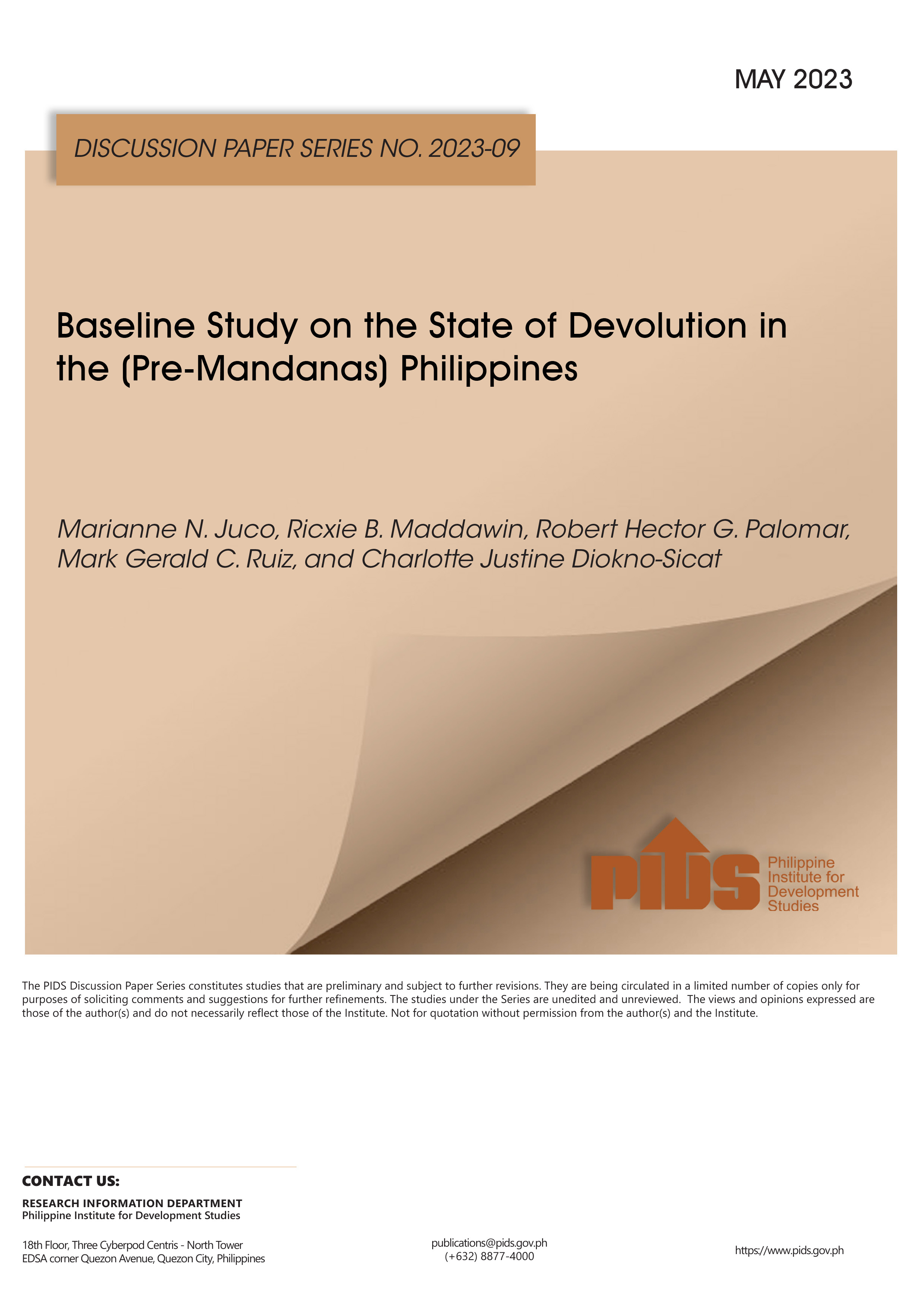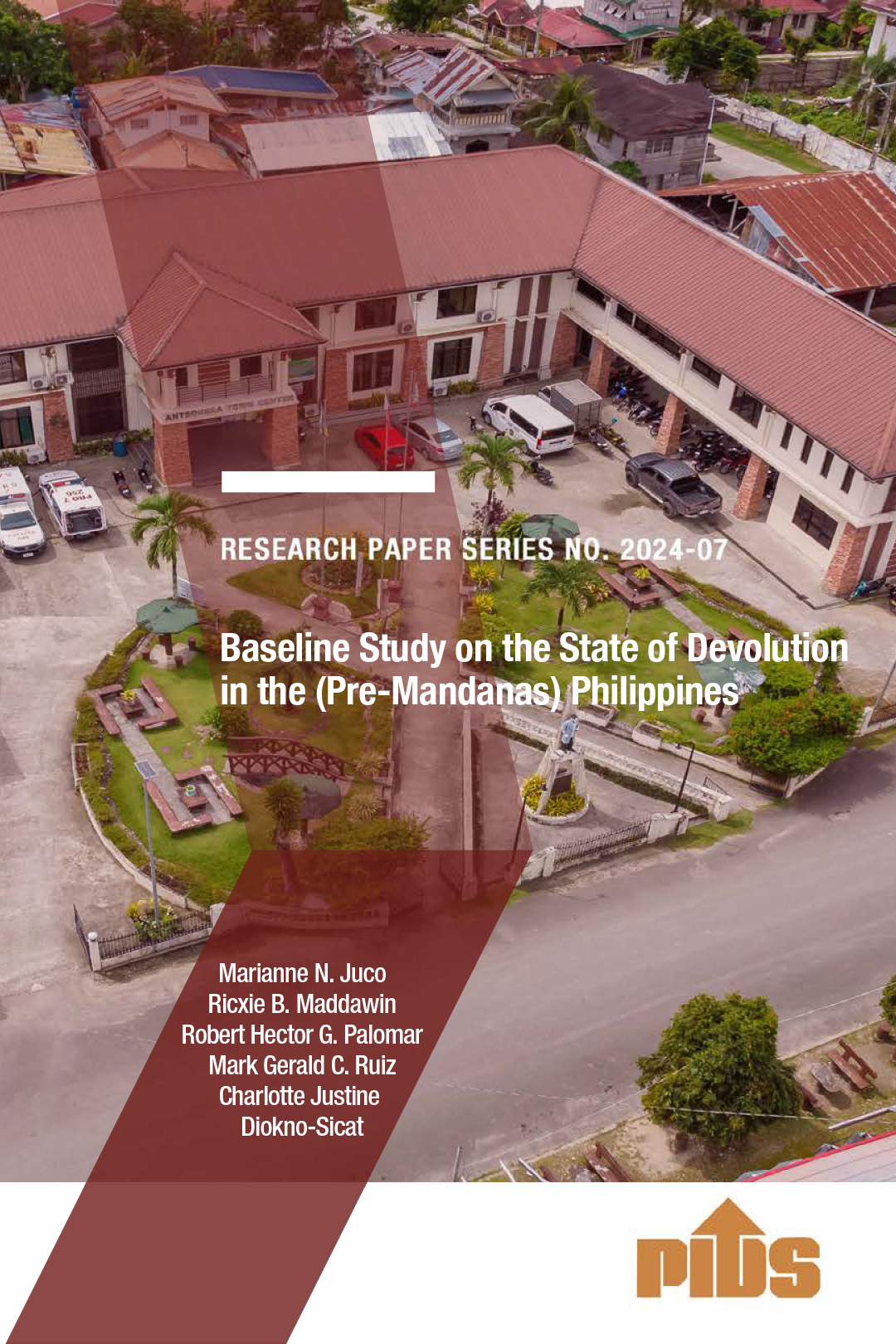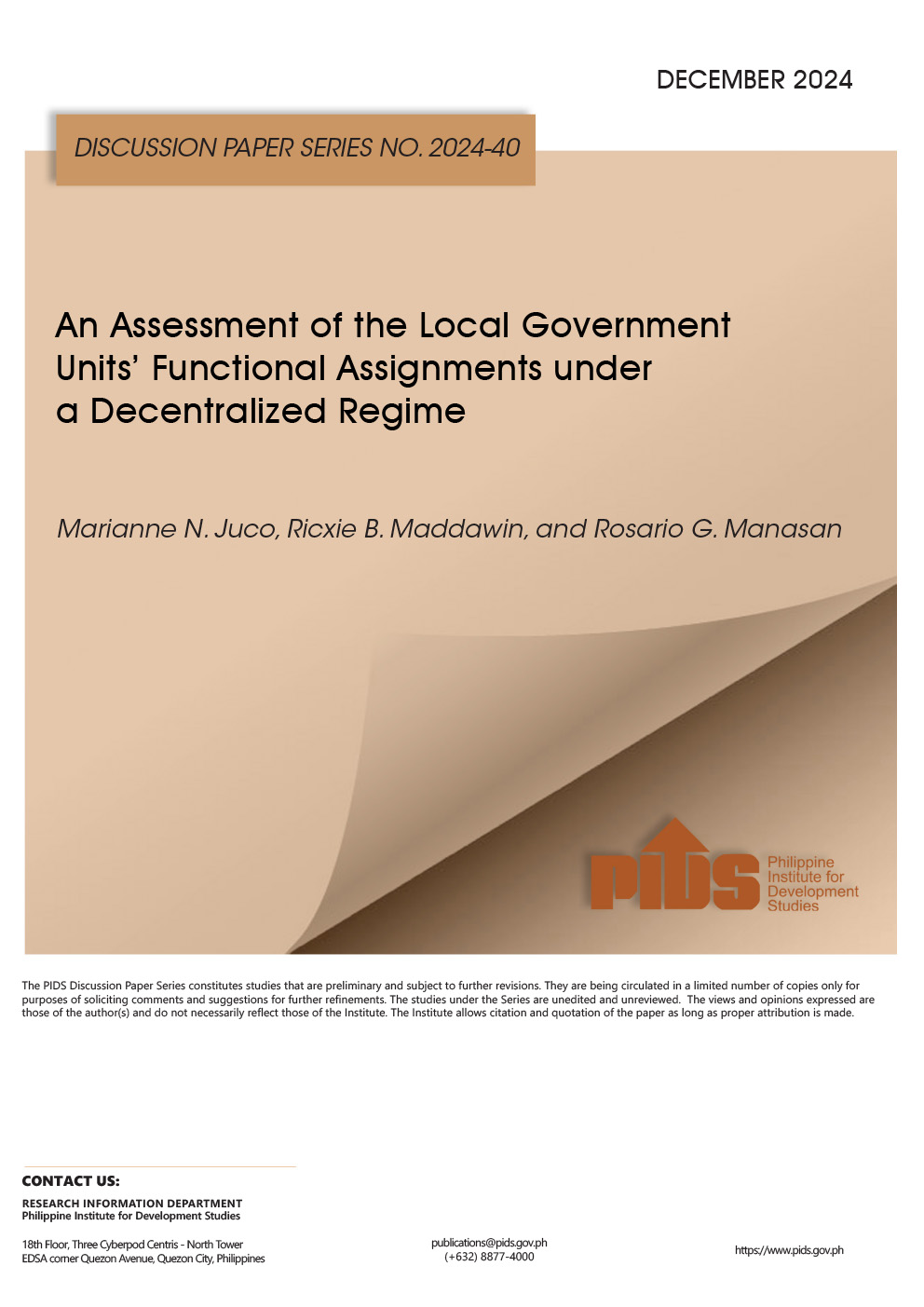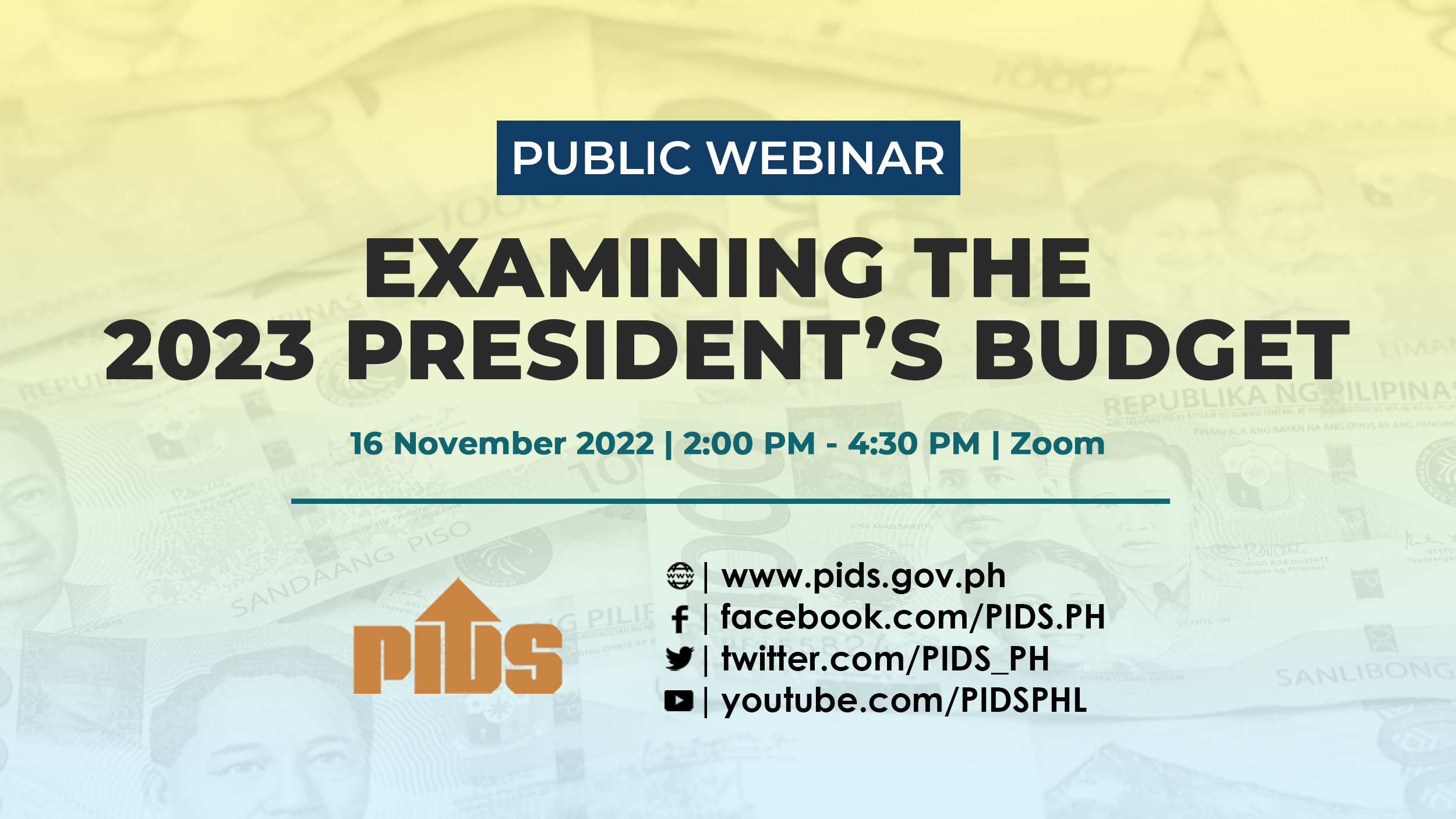
The national government should include funding for the capacity development of local government units (LGUs) to enable them to assume re-devolved functions once the Mandanas ruling is implemented.
Research Fellow Justine Diokno-Sicat emphasized this at a recent webinar organized by state think tank Philippine Institute for Development Studies (PIDS) where she presented the study “Analysis of the 2022 President's Budget”.
The Mandanas ruling increases the national tax allotment or NTA (formerly known as the internal revenue allotment) of LGUs. Compared to last year, the NTA increased by 38 percent (PHP 263.5 billion) in 2022, which is almost 20 percent of the proposed budget.
Sicat noted that with the implementation of the Mandanas ruling, there are adjustments in the budget allocated for LGUs.
“Major assistance programs are still present, but the total [allocation] decreased by 18 percent compared to last year's budget, owing largely to the reduction of the Department of Public Works and Highway's 2022 Basic Infrastructure Program,” she pointed out.
The Growth Equity Fund (GEF) also replaced the Local Government Support Fund-Assistance to Municipalities (LGSF-AM), a program lodged with the Department of the Interior and Local Government. Both programs are designed to assist poor LGUs in delivering basic services by providing them with financial subsidy to implement their priority programs and projects.
Considering these developments, Sicat underscored the need to provide LGUs with capacity-building interventions so they can carry out re-devolved functions and manage their resources properly.
“The LGUs should be given technical capacity-development programs to effectively use the additional resources and allow them to contribute to national development,” she said.
She also urged local governments to closely monitor the GEF implementation and other national government assistance programs provided to LGUs.
Apart from the subsidies for local governments, a large chunk of the proposed 2022 President’s Budget is allotted for the management of the COVID-19 pandemic.
“One of the main three pillars of the 2022 [proposed] national budget is building resilience amid the pandemic…[Among the] major programs related to the [COVID-19] response include allocations [for] drugs, medicines, and vaccines, health facilities, enhancement programs, and the prevention and control of communicable diseases,” Sicat said.
Funds are also apportioned to laboratory network commodities and human resources for emergency hiring.
Meanwhile, Sicat said the government should invest in information and communications technology to facilitate the delivery of public services.
She also stressed the importance of funding the national ID system and implementing the Community-Based Monitoring System to improve the delivery of social assistance and the targeting of beneficiaries in the grassroots. ###
You may watch the webinar at https://fb.watch/9NucIJG0VN/ or https://youtu.be/6L63pHiKr_4
For more videos of PIDS events, go to https://www.pids.gov.ph/videos.
Research Fellow Justine Diokno-Sicat emphasized this at a recent webinar organized by state think tank Philippine Institute for Development Studies (PIDS) where she presented the study “Analysis of the 2022 President's Budget”.
The Mandanas ruling increases the national tax allotment or NTA (formerly known as the internal revenue allotment) of LGUs. Compared to last year, the NTA increased by 38 percent (PHP 263.5 billion) in 2022, which is almost 20 percent of the proposed budget.
Sicat noted that with the implementation of the Mandanas ruling, there are adjustments in the budget allocated for LGUs.
“Major assistance programs are still present, but the total [allocation] decreased by 18 percent compared to last year's budget, owing largely to the reduction of the Department of Public Works and Highway's 2022 Basic Infrastructure Program,” she pointed out.
The Growth Equity Fund (GEF) also replaced the Local Government Support Fund-Assistance to Municipalities (LGSF-AM), a program lodged with the Department of the Interior and Local Government. Both programs are designed to assist poor LGUs in delivering basic services by providing them with financial subsidy to implement their priority programs and projects.
Considering these developments, Sicat underscored the need to provide LGUs with capacity-building interventions so they can carry out re-devolved functions and manage their resources properly.
“The LGUs should be given technical capacity-development programs to effectively use the additional resources and allow them to contribute to national development,” she said.
She also urged local governments to closely monitor the GEF implementation and other national government assistance programs provided to LGUs.
Apart from the subsidies for local governments, a large chunk of the proposed 2022 President’s Budget is allotted for the management of the COVID-19 pandemic.
“One of the main three pillars of the 2022 [proposed] national budget is building resilience amid the pandemic…[Among the] major programs related to the [COVID-19] response include allocations [for] drugs, medicines, and vaccines, health facilities, enhancement programs, and the prevention and control of communicable diseases,” Sicat said.
Funds are also apportioned to laboratory network commodities and human resources for emergency hiring.
Meanwhile, Sicat said the government should invest in information and communications technology to facilitate the delivery of public services.
She also stressed the importance of funding the national ID system and implementing the Community-Based Monitoring System to improve the delivery of social assistance and the targeting of beneficiaries in the grassroots. ###
You may watch the webinar at https://fb.watch/9NucIJG0VN/ or https://youtu.be/6L63pHiKr_4
For more videos of PIDS events, go to https://www.pids.gov.ph/videos.












